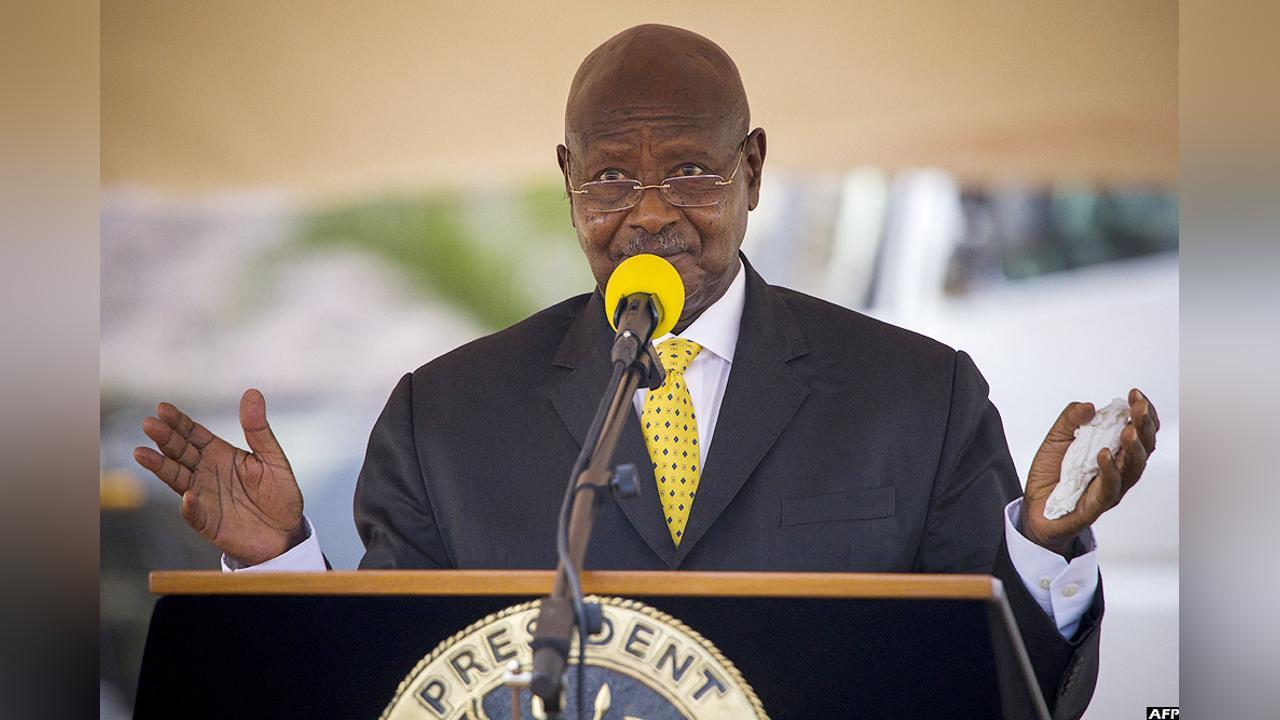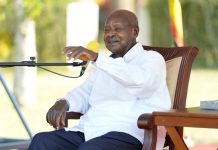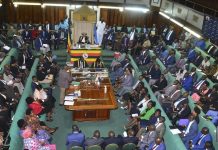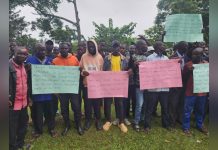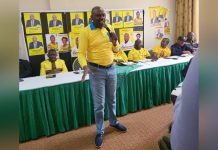By Faridah N Kulumba
Africa-Press – Uganda. Uganda’s Minister for Justice and Constitutional Affairs in President Yoweri Kaguta Museveni’s government who is also the President General of the Democratic Party (DP), Norbert Mao, picked up nomination forms from Electoral Commission (EC) Headquarters in Kampala to challenge his boss in the 2026 general elections.The nomination forms were picked by DP Secretary General Gerald Siranda on 18th August 2025. Siranda confirmed to reporters that Mao will hold the party flag in the 2026 presidential elections, although he is yet to resign his ministerial position. “Our party went through the National Delegates Conference and eventually endorsed the candidate in the honourable Norbert Mao. In DP, the presidential flag bearer automatically is the party president. The moment you are voted as the party president, you are automatically endorsed as the presidential flag bearer, which we did,” Siranda said.
How the DP president agreed to serve under Museveni’s Party
Mao who has been president of the DP since 2010 and has contested for presidency three times. In the past general elections Mao came in the fifth position with 57,682 votes or 0.5 percent of the 10.3 million valid votes. That was before signing a working cooperation agreement with the ruling party the National Resistance Movement (NRM). On 20 July 2022, the opposition Mao met with NRM national chairman President Museveni and signed the agreement.
Surprisingly, on 21st July 2022, one day after DP Mao entered into a pact with NRM, he was appointed by President Museveni as the new Minister for Justice and Constitutional Affairs. He was vetted in the parliament and was approved as a minister that very day. His appointment and acceptance shocked many Ugandans due to the fact that he has been so critical of the ruling government and many could not believe that he will be serving under the same government he has been criticizing for years. In one of the videos circulating on social media platforms, Mao on March 6, 2022, said he can never be bought with money and that he can never join a government and leave his party behind.
Minister vying for presidency!
It is mandatory for public servants to resign from their public offices before joining elective politics. Unlike parliamentary and local government aspirants, those intending to contest for president can resign a day before the nomination of candidates. The nomination of candidates for president was moved from October 2nd and 3rd to September 23rd and 24th, 2025, meaning that Mao has up to September 22nd to have resigned his ministerial position. To be duly nominated to contest for president, a candidate is required to collect at least 98,000 signatures of registered voters from at least 98 districts of Uganda. DP wants this law to be amended, noting that this should not apply to political parties. DP’s justification for their leader serving two masters.According to the working cooperation agreement Mao signed with the NRM, in the 42-clause agreement, both parties agreed to share political power but also to foster constitutionalism and respect for human rights. DP agreed to cooperate with the ruling party in supporting the overall governance agenda and supporting parliamentary votes on matters of confidence and supply for the full term (2021-2020) of this parliament. DP has got only 9 members of parliament out of 529 MPs of whom 300 belong to NRM.
Excommunication moves
Mao’s partnership with Museveni led to members of the DP bloc excommunicating him. The DP bloc said they were not consulted by their leader Mao before signing the agreement with President Museveni. They vowed to impose several sanctions against Mao and his group that appended signature to the deal with NRM. However, Siranda’s statement after picking his boss’s nomination forms, criticized party members who oppose the cooperation agreement with the ruling NRM, accusing them of engaging in the “politics of untouchability”. “In Uganda, there are political leaders who believe that one can’t talk to other political party members. That we call political untouchability,” he said.
According to Mao, the Democratic Party (DP) remains an independent entity. During the DP’s 12th National Council and National Executive Committee meeting in Soroti City, it was agreed that the Cooperation Agreement should be formally accepted and adopted as a working document of the party.Mao explained that he was open to the agreement, as it came from President Museveni, and he drafted it after consulting with his party committee. Even though Mao entered into a pact with the NRM, and he has been serving as a minister under Museveni’s party for almost four years, he vowed never to resign from his position as the DP president. According to him, the constitution of DP and the cooperation agreement are not mutually exclusive. He explained that he signed the agreement as the DP president, and he will continue discharging his duties as the president of DP.
Alleged nomination manipulation
During the time DP.waa preparing for its pivotal National Delegates Conference to elect new leaders, including the President General, a fierce leadership battle erupted between incumbent Mao and challenger Richard Sebamala.Sebamala.a Member of Parliament on DP tickets publicly accused Mao of orchestrating manipulative tactics to block his candidacy and maintain control over the party. These allegations highlight deep-seated tensions within DP, Uganda’s oldest political party, as it struggles to maintain relevance ahead of the 2026 general elections. Sebamala’s accusations centre on Mao’s alleged attempts to disqualify him from the presidential race by invoking strict eligibility criteria.
Mao claimed Sebamala did not meet the DP constitution’s requirement of 10 years of active membership or five years in a senior party body to contest for President General. Sebamala, who transitioned from a career as a civil engineer to politics in 2019, argues that these rules are being weaponized to stifle competition. He asserts that the National Council and Delegates Conference have the authority to amend such regulations in the party’s interest, accusing Mao of clinging to power through procedural manoeuvres. Sebamala and his supporters argue that Mao’s alignment with the NRM has eroded DP’s credibility, leading to a significant loss of members and influence. Since 2016, DP’s parliamentary representation has plummeted from 15 MPs to just six in 2025, with defections to the youngest party the National Unity Platform (NUP) intensifying the crisis.
For More News And Analysis About Uganda Follow Africa-Press

